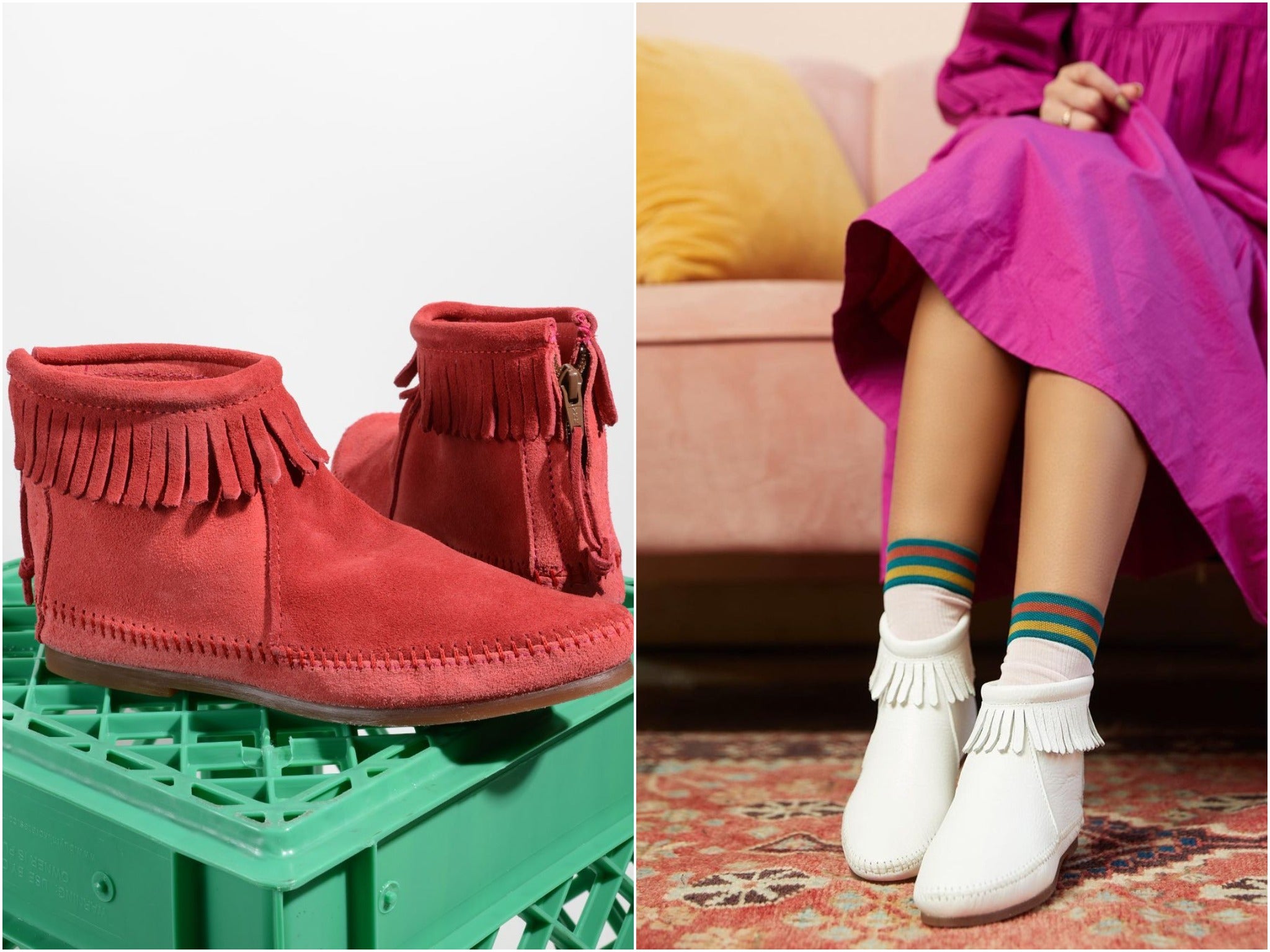Minnetonka: Leading moccasins brand apologises for profiting off appropriated Indigenous culture
‘We deeply and meaningfully apologise for having benefited from selling Native-inspired designs without directly honouring Native culture or communities’

Your support helps us to tell the story
From reproductive rights to climate change to Big Tech, The Independent is on the ground when the story is developing. Whether it's investigating the financials of Elon Musk's pro-Trump PAC or producing our latest documentary, 'The A Word', which shines a light on the American women fighting for reproductive rights, we know how important it is to parse out the facts from the messaging.
At such a critical moment in US history, we need reporters on the ground. Your donation allows us to keep sending journalists to speak to both sides of the story.
The Independent is trusted by Americans across the entire political spectrum. And unlike many other quality news outlets, we choose not to lock Americans out of our reporting and analysis with paywalls. We believe quality journalism should be available to everyone, paid for by those who can afford it.
Your support makes all the difference.Leading American moccasins brand Minnetonka has apologised for profiting off “Native-inspired designs”.
On the occasion of Indigenous Peoples’ Day (11 October) Minnetonka CEO David Miller underscored the family-run footwear business’ commitment to the Native American community.
In a blog post published on Monday, Miller wrote: “We deeply and meaningfully apologise for having benefited from selling Native-inspired designs without directly honouring Native culture or communities.”
At the outset, Miller clarified that Minnetonka is not a Native-owned brand, writing: “When we started in 1946, Minnetonka was one of many companies who sold handcrafted moccasins and Native-inspired accessories to roadside gift shops.”
He acknowledged that some of the brand’s original products, that are still sold today, have been appropriated from Native American culture.
Noting that the designs of their products are not the only problem, he added: “We have also come to learn that even the word “moccasin” is an anglicisation of the Ojibwe word “makizinan.”
Miller said Minnetonka first publicly acknowledged this appropriation in 2020 but that it was “long overdue”.
He also outlined the measures the brand is taking to support Native communities, including appointing a Reconciliation Advisor, hiring from within Native American talent pools, collaborating with indigenous designers and artists, as well as updating the brand language to remove culturally appropriated symbols.
He also announced the first of these collaborations will be with the newly appointed Reconciliation Advisor, Adrienne Benjamin, who is a Minnesota-based Anishinaabe artist. The collaboration launches in December this year.
Benjamin, in a separate blog post, wrote she was “excited” about the future of Minnetonka and gave the Millers credit for “stepping up, educating themselves, taking the heat, and giving it their best efforts”.
Miller said the brand will continue to financially support Native organisations doing important work in its home state, Minnesota and other parts of the US.
Join our commenting forum
Join thought-provoking conversations, follow other Independent readers and see their replies
Comments